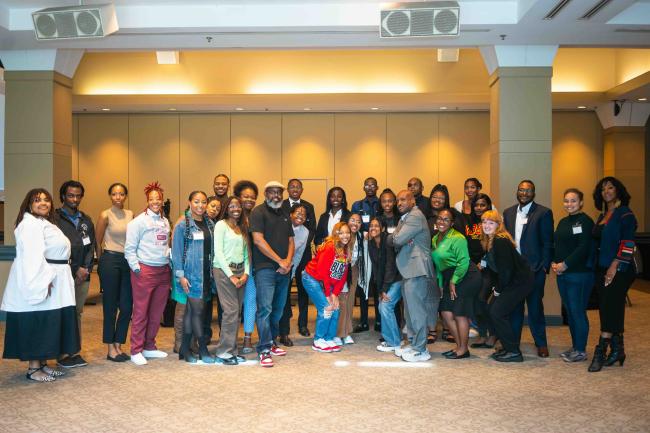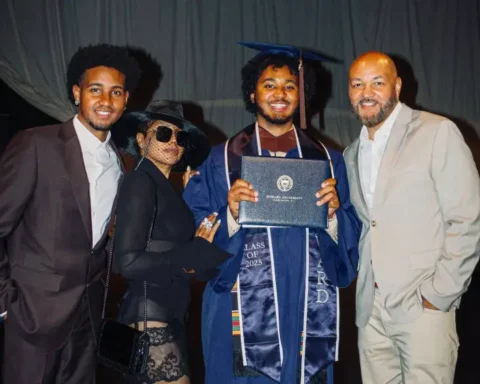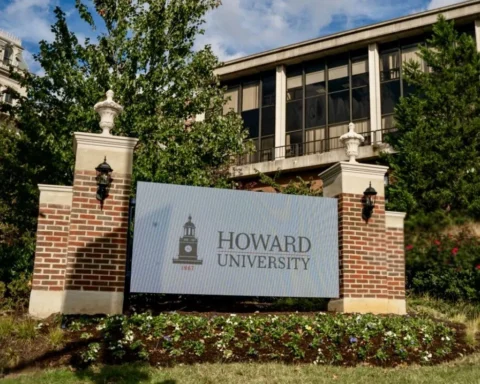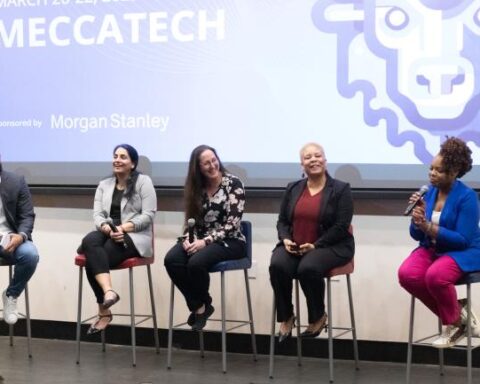By Sholnn Z. Freeman
The Center for Journalism & Democracy (CJD) at Howard University is introducing a groundbreaking multi-campus news reporting course this Fall. This course, taught simultaneously at seven Historically Black Colleges and Universities (HBCUs), will equip students with the powerful tools of investigative journalism.
The Investigative Journalism I course will be taught by Nikole Hannah-Jones, the founder of the Center for Journalism & Democracy, and the Knight Chair in Race and Journalism at the Cathy Hughes School of Communications at Howard University.
Hannah-Jones, a Pulitzer Prize-winning journalist and staff writer at The New York Times Magazine, will teach the lecture every Monday at Howard. Other HBCUs will join virtually thanks to CJD equipment sent to each school. On Wednesdays, each school will lead their own lab sessions where students will practice the investigative skills learned during Hannah-Jones’ lecture.
Morehouse College, North Carolina A&T University, North Carolina Central University, Savannah State University, Texas Southern University and the University of the District of Columbia will participate in the Fall, with Florida A&M University and Morgan State University launching their courses in 2025. The nine schools belong to the CJD consortium which was created to execute its mission to invest in HBCU journalism programs and train student journalists in pro-democracy, investigative journalism. CJD is piloting and funding this novel multi-campus course.
“Our communities are disproportionately affected by many of the ills and wrongdoings that journalism uncovers, and our students have the will and determination to investigate these issues and hold power accountable,” Hannah-Jones said. “Now, they will have the skills to match their determination.”
Investigative reporting is critical in a democracy because it uncovers how power is used against the vulnerable and brings injustices to light. Yet most HBCU journalism students never get the opportunity to take courses in investigative reporting due to lack of resources. Through resource-sharing, nearly 80 students will have the opportunity to participate in this investigative reporting course.
Executive director Kali-Ahset Amen, Ph.D., led the two-year effort to establish the HBCU Investigative Journalism Consortium and develop the cross-campus course to build out the technology and operational plans. Additionally, she created the Charlotta Spears Bass Faculty Institute, which brought the consortium’s faculty together for investigative training and to co-plan curriculum.
Hannah-Jones said she was excited for HBCU students and eager to shape the next generation of investigative, pro-democracy journalists.
“Creating something that has never been done before takes countless hours of planning meetings with stakeholders across multiple campuses,” Hannah-Jones said. “I am grateful for Dr. Amen’s leadership and the hard work of our small but mighty CJD staff as well as our administration and our partner schools for their dedication to creating this course in service of our students.”
As part of the course, students will read and analyze investigative reporting that has had a profound impact on society. They will then learn essential reporting skills such as accessing public records, using data, conducting investigative interviews, sourcing, and archival research. Over the summer, before the course begins, students are required to attend a three-day virtual boot camp. This boot camp will feature sessions dedicated to strengthening writing and other skills in preparation for the class.





